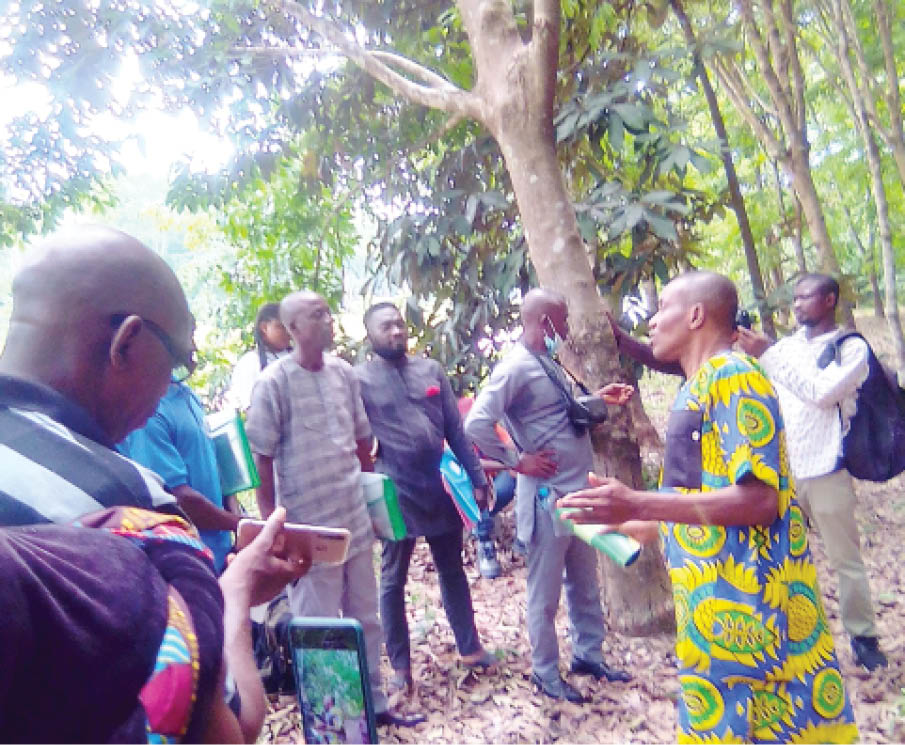No fewer than 25 natural rubber farmers and entrepreneurs from the 14 producing states in Nigeria have been introduced to new methodologies called rubber budding.
Agricultural scientists and researchers at the Rubber Research Institute of Nigeria (RRIN) also took the rubber entrepreneurs through agroforestry and rubber mixed farming on how to maximise profits using land space of their plantations for snailry, honey bees production, rabbitry as well as inter-cropping.
The event organised by RRIN in collaboration with the Federal Ministry of Agriculture and Rural Development tagged Conduct Of Business School Workshop For Rubber Farmers, was declared open by the Minister of Agriculture, Alhaji Sabo Nanono.
The farmers also learnt how to clone and regenerate rubber species genetically.
The rubber farmers, who were taken round fields, were shown what is described as vegetative propagation method to multiply rubber species from nursery stage to plantation.
The farmers were advised that it was uneconomical to allow the land between lines of rubber trees to waste.
Dr Suleiman Idoko, one of the guides and researchers at the institute, enumerated how they could utilise such a space by inter-cropping, that is planting other crops in between the rubber trees.
“We advised rubber farmers to utilise the spaces between rubber trees by planting, especially cassava, which is much in demand throughout the country and makes added gain. Other crops and vegetables that can help the rubber tree to grow and which themselves can survive under rubber trees such as ogbono, okro, maize, bitter leaf, water leaf, groundnuts, pears, walnuts are advised to be planted. These help the farmers not only to make additional profits but keep weeds away from the rubber trees.”
One of the farmers, Pastor Abichi Henry, from Benue State, commended the Business School Workshop, saying it has afforded him to learn more to add value to his rubber business.
Earlier, Minister of Agriculture, Alhaji Nanono, said that the federal government was ready to boost the technical know-how of rubber farmers and boost the capacity of the subsector.
The minister, who spoke through the deputy director of tree crop in the ministry, Mr B. C. Ukattah, described rubber as an important economic tree which the government wants to invest much in so that it can return to its prime position as a way of redirecting attention from oil.
“Rubber is pivotal to the economy of the country. It ranks the third as a major foreign exchange earner after oil palm and cocoa. We cannot overemphasise the need to create awareness and improve the technical know-how of rubber farmers, tappers, processors and marketers through this Farmers Business School,” the minister said.
President of National Association of National Rubber Producers and Processors Association of Nigeria (NARPPMAN), Peter Igbinosun, represented by the publicity secretary, said the workshop was very apt and they would consistently ensure that rubber is no longer neglected.

 Join Daily Trust WhatsApp Community For Quick Access To News and Happenings Around You.
Join Daily Trust WhatsApp Community For Quick Access To News and Happenings Around You.


